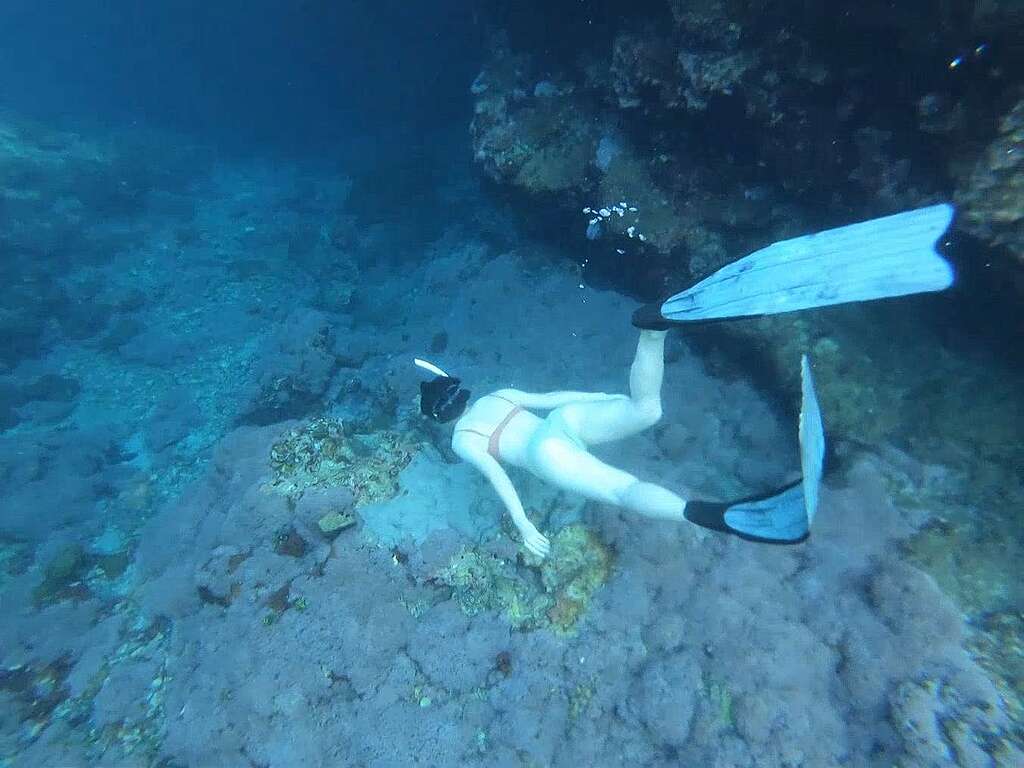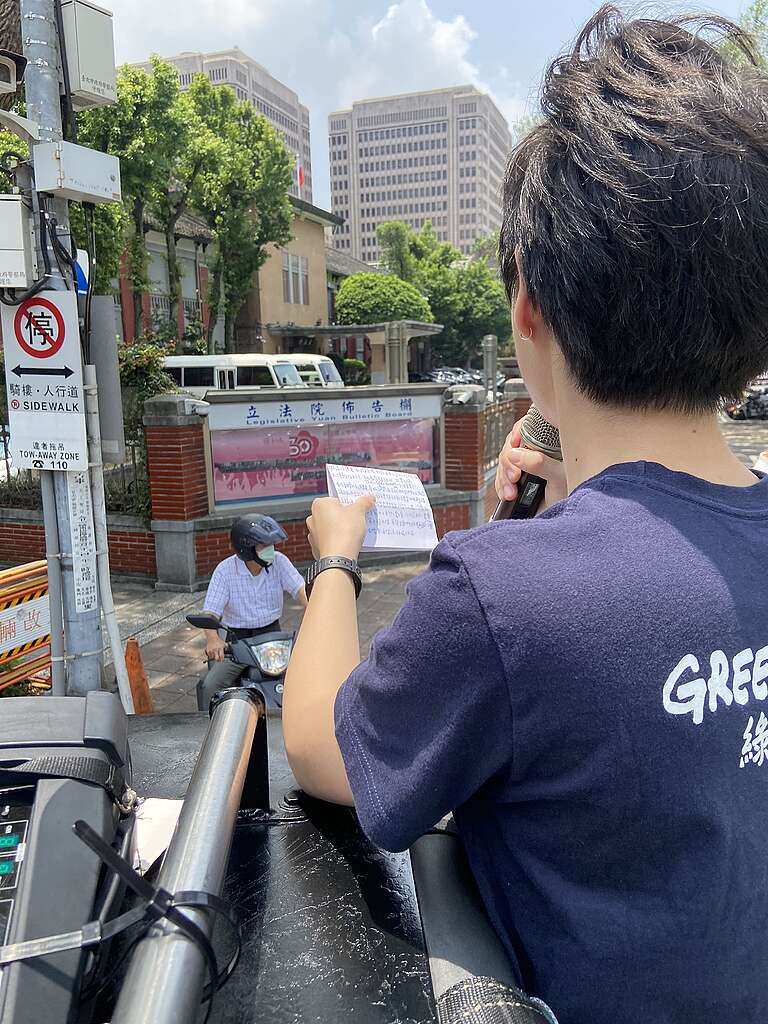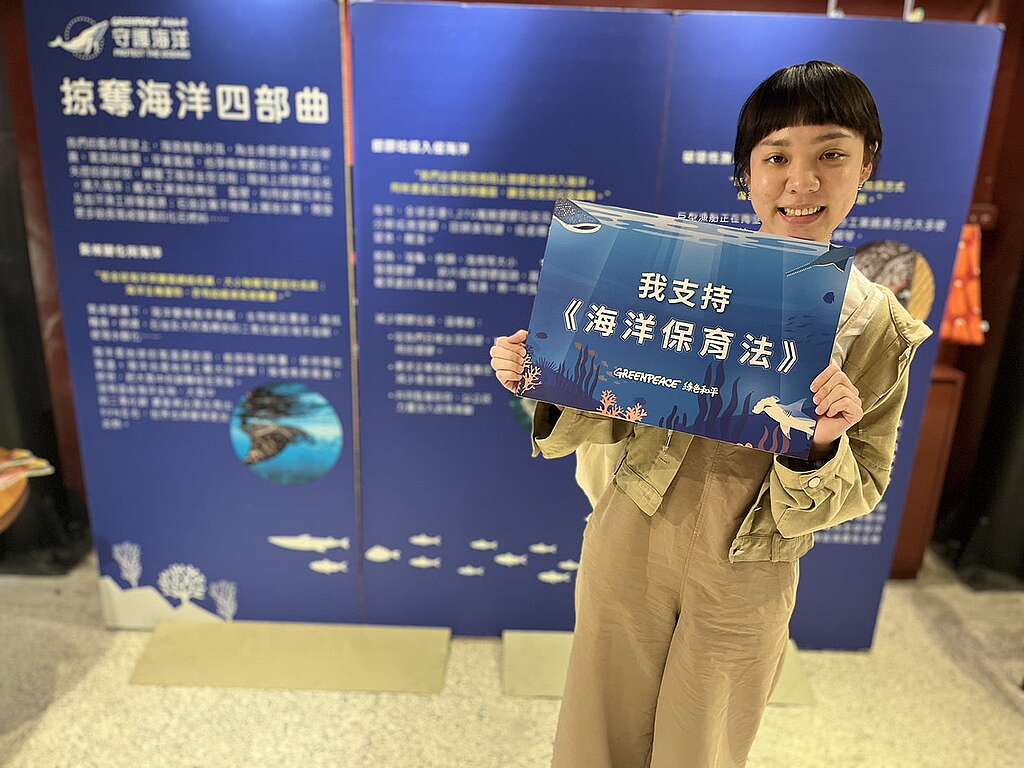"I still can't get the image of fish trapped in nets out of my head – how they couldn't speak, couldn't save themselves, and slowly died."
Before working on Lanyu Island in Taiwan, Dao-Ting didn't know much about environmental issues, and she was even a bit afraid of the water. It wasn't until she witnessed the coast covered with trash that was carried by seasonal winds and waves when she started to understand the extensive and challenging nature of the human-induced trash issue.

After work, Dao-Ting signed up for diving lessons, where she saw a large amount of trash in the ocean. In addition to the bottles, food containers, and plastic bags, she saw many covid-19 test kits, and disposable masks due to the ongoing pandemic, as well as various Korean boy/girl bands merchandise.
It was then when Dao-Ting realised the truth: "The trash found in the ocean is closely related to human activities."
A few years later, Dao-Ting moved to Taipei for work and actively engaged as a Greenpeace volunteer to advocate for the Ocean Conservation Act. As someone who is usually soft-spoken, Dao-Ting never imagined that one day she would be standing on the "Ocean Conservation Act Chariot", talking out of a speakerphone. However, with her determination to protect the ocean, she continued to muster the courage to speak out.

During the four months of joining the Greenpeace volunteer group, Dao-Ting understood that environmental advocacy must be done hand-in-hand with the government and community engagement. Dao-Ting learned many communication techniques during her calls to the legislator's office to lobby for the Ocean Conservation Act that allowed her to articulate her thoughts and stance more clearly.
Today, Dao-Ting continues to stay active on her social media platforms to share information about the Ocean Conservation Act in an attempt to inspire her friends to take action, but often feels discouraged from their lack of response.
In Dao-Ting's view, people love going to the ocean because of its healing power. "Everyone says they love the ocean, but where are you when the ocean needs you?" Dao-Ting sadly points out.

Dao-Ting still remembers the fish trapped in the net, unable to move. She can't bear to think of all the other ocean creatures that have silently died due to human activities. These sad endings are what drive Dao-Ting to act. Despite the cold shoulders and discouraging words received during her volunteer work, she continues the fight to protect and speak out for the ocean.
The ocean can't talk, and the ocean creatures cannot ask for help, but we can still choose to hear their cries and work to protect them just like Dao-Ting.
Claudia Lim is Community Outreach Intern at Greenpeace East Asia Taipei.






